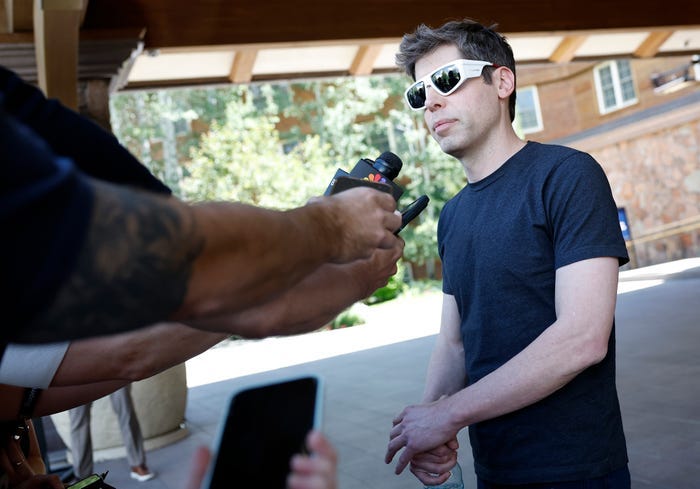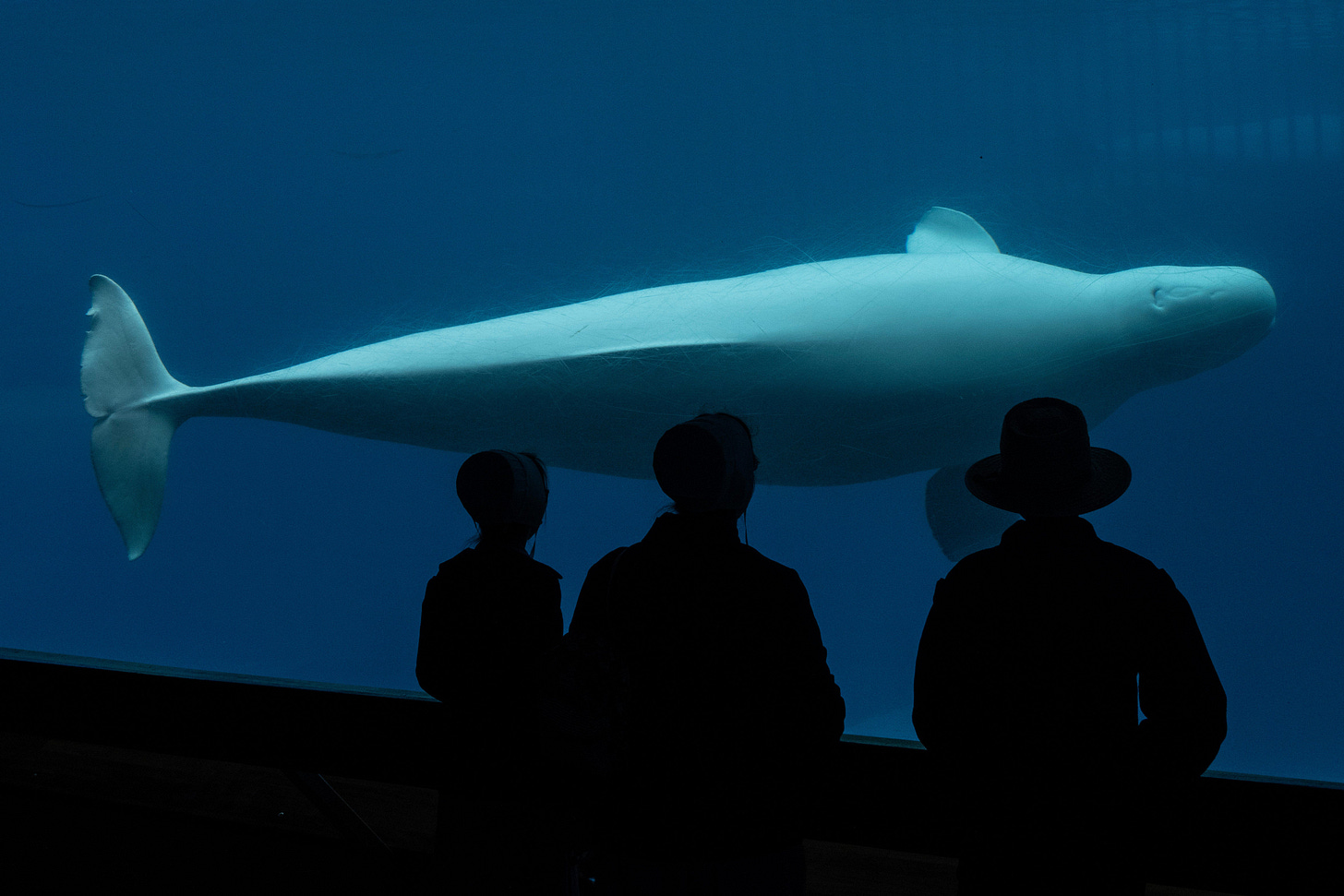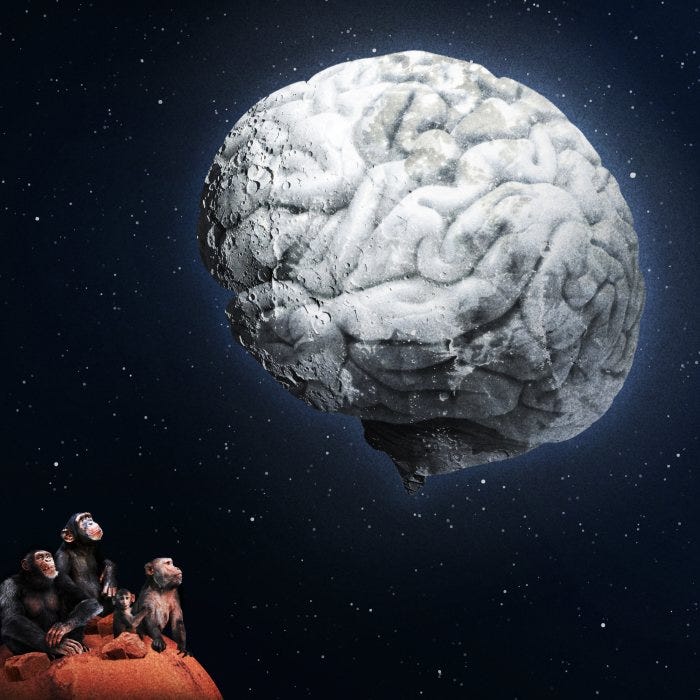News Dispatch
07.10.25
OpenAI has struck around $1 trillion worth of deals this year to secure the vast computing power it says it will need to run and scale its AI models, raising questions over how it will fund such enormous commitments. Agreements with chipmakers AMD and Nvidia, alongside Oracle and data centre operator CoreWeave, will give the ChatGPT maker access to more than 20 gigawatts of computing capacity — comparable to 20 nuclear reactors — over the next decade.
Each gigawatt costs about $50 billion to build, implying a total bill of $1 trillion, far exceeding OpenAI’s current revenues. Analysts warn the company could lose up to $10 billion this year. The deals use complex financing: Nvidia is investing $100 billion in OpenAI, while AMD is offering cut-price equity warrants tied to performance. Oracle and AMD’s market values soared after their partnerships were revealed, fuelling concern over a potential AI spending bubble. OpenAI insists future products and subscriber growth will justify the scale of its expansion. (FT)
Greta Thunberg returned to Europe unbowed after being deported by Israeli authorities, arriving in Athens to cheering supporters with one hand clutching a small bouquet and the other raised defiantly. The 21-year-old activist had been part of the Global Sumud Flotilla, an international convoy seeking to deliver aid to Gaza before it was intercepted by the Israeli navy. Israel confirmed it deported 171 foreign nationals to Greece and Slovakia out of more than 470 detained. Activists came from across Europe and North America. Lawyer Lubna Tuma said 150 people remain in Ketziot prison, 40 of them on hunger strike over alleged mistreatment — accusations Israel denies. Thunberg accused governments of turning a blind eye to Gaza, saying: “No one has the privilege to say we are not aware of what is happening.” Spanish activist Ada Colau added their treatment was “nothing compared to what Palestinians endure daily.” Flotilla organisers say more aid boats are now en route to Gaza despite the crackdown. (The Times)
Police say they have dismantled the UK’s largest ever phone theft operation, breaking up an international gang suspected of smuggling up to 40,000 stolen mobiles from Britain to China in the past year. Eighteen suspects were arrested and more than 2,000 stolen devices seized after a Christmas Eve tip-off, when a victim tracked their iPhone to a Heathrow warehouse containing nearly 900 other phones.
Detectives uncovered a network exporting up to 40% of all phones stolen in London, where thefts have nearly tripled since 2020. Officers staged raids on 28 properties, seizing devices, foil-wrapped to evade detection. The gang targeted high-value Apple products, with stolen iPhones fetching up to £4,000 in China. Commander Andrew Featherstone called the crackdown “the most extraordinary set of operations the Met has ever undertaken.” Police say thefts are falling this year, but critics want tougher industry action to make stolen phones worthless. (BBC)
Canada’s long-troubled Marineland park has sparked outrage after warning it may euthanise its remaining 30 beluga whales unless the federal government provides emergency funding. The Niagara Falls attraction, closed since 2024 and near bankruptcy, sought to export the whales to Chimelong Ocean Kingdom in China but was denied a permit under Canada’s 2019 “Free Willy” law banning the exploitation and breeding of captive whales and dolphins.
Fisheries minister Joanne Thompson rejected a cash bailout, saying Marineland’s failure to plan alternatives “does not place the onus on the Canadian government.” She also said the whales’ health had deteriorated and refused to approve their transfer to another captive facility. Animal rights advocates condemned Marineland’s threat. “Threatening to kill all their animals if they don’t get emergency funding is just repugnant,” said Melissa Matlow of World Animal Protection. Campaigners are urging solutions such as marine sanctuaries, though suitable facilities remain rare and under development. (NYT)
A gripping Guardian long read has uncovered the extraordinary story of a Europe-wide literary crime spree in which “as many as 170 rare Russian books, valued at more than £2.5m, vanished from the shelves” of libraries across the continent between 2022 and 2023. The heists struck institutions from Riga and Tallinn to Paris, Berlin and Warsaw, where one expert said it was “like gouging out the crown jewels” when 79 volumes disappeared from the University of Warsaw’s 19th-century collection.
The thieves used fake identities and “high-quality facsimiles” to swap originals, slipping through security that lacked alarms on fragile older works. Investigators traced the plot to a loose network of Georgian suspects, but found competition and betrayal rather than one clean chain of command. The trail led to Russia, with some books appearing at auction despite official denials. Prosecutor Bartosz Jandy warned that recovering them would be almost impossible: “That would need cooperation with Russia, and while we’re almost at war that’s impossible.”
A fascinating new exploration of human social limits revisits British anthropologist Robin Dunbar’s famous idea that our brains evolved to manage complex social lives — but with strict capacity. The so-called Dunbar number suggests humans can maintain about 150 stable relationships, a figure he says “has held steady since the advent of our species, and is unchanged even in the digital age of social media.” Our 3-pound brains devote huge resources to social cognition; three-quarters is the neocortex, vital for memory, language and empathy. These mental demands, Dunbar argues, impose natural boundaries: five intimate friends at the core, 15 close contacts, then wider ripples out to 150 people you’d “invite to a wedding or slap on the back at an airport.” Others disagree. Swedish biologist Johan Lind calls 150 “an underprediction,” arguing modern humans aren’t bound by survival pressures faced by primates. Yet Dunbar insists technology only prolongs ties — it doesn’t truly expand our social bandwidth. (WSJ)






